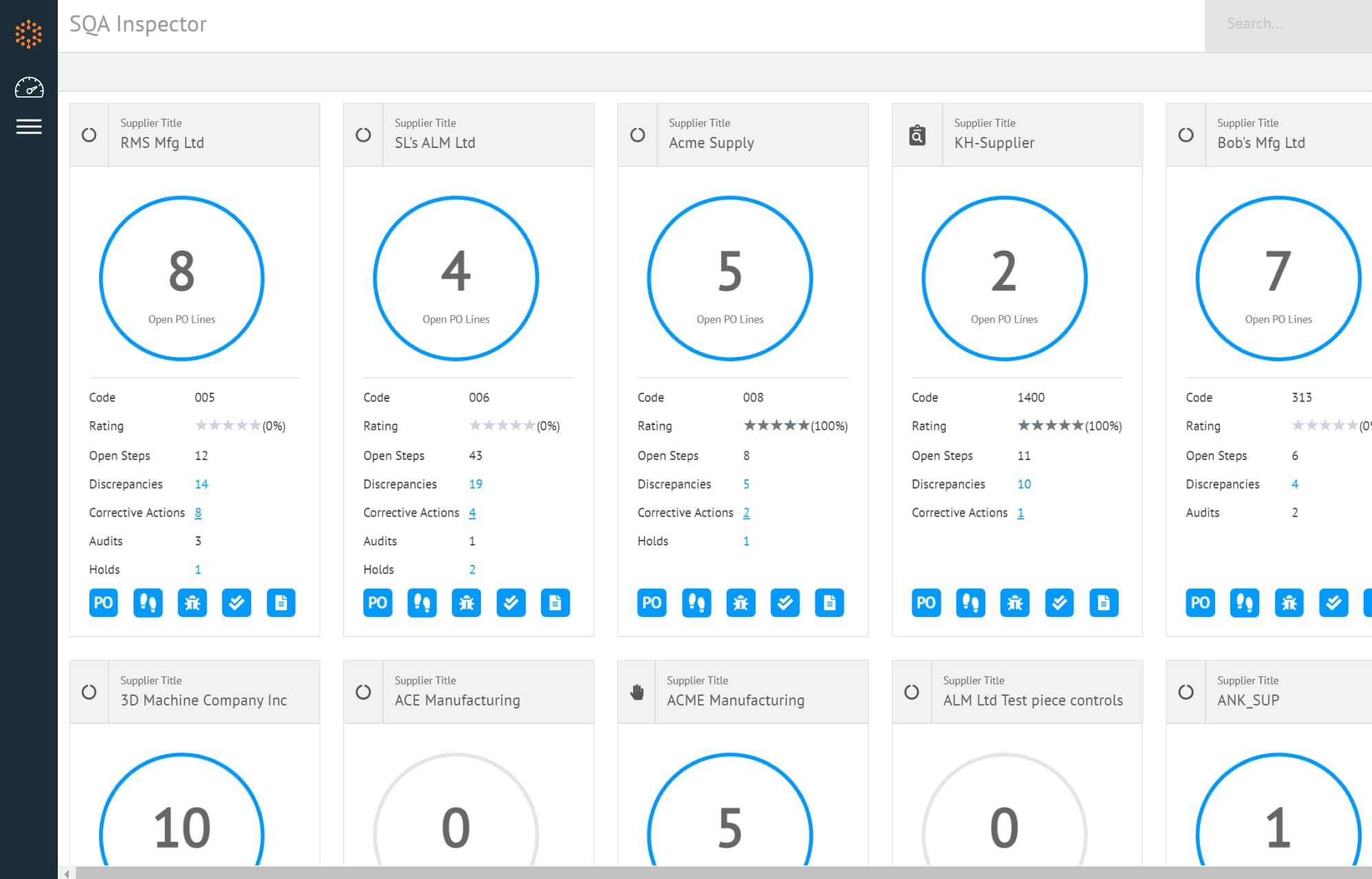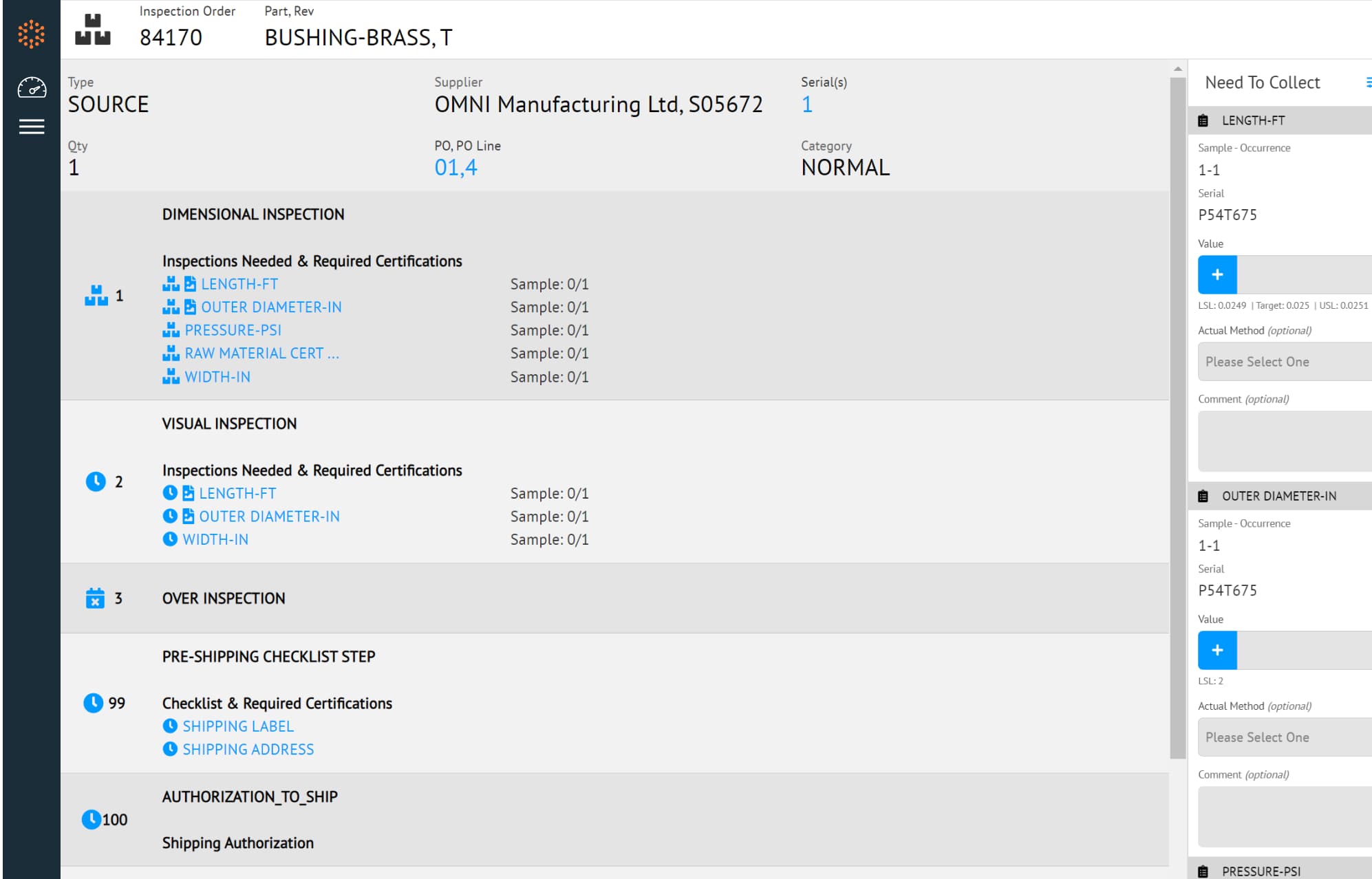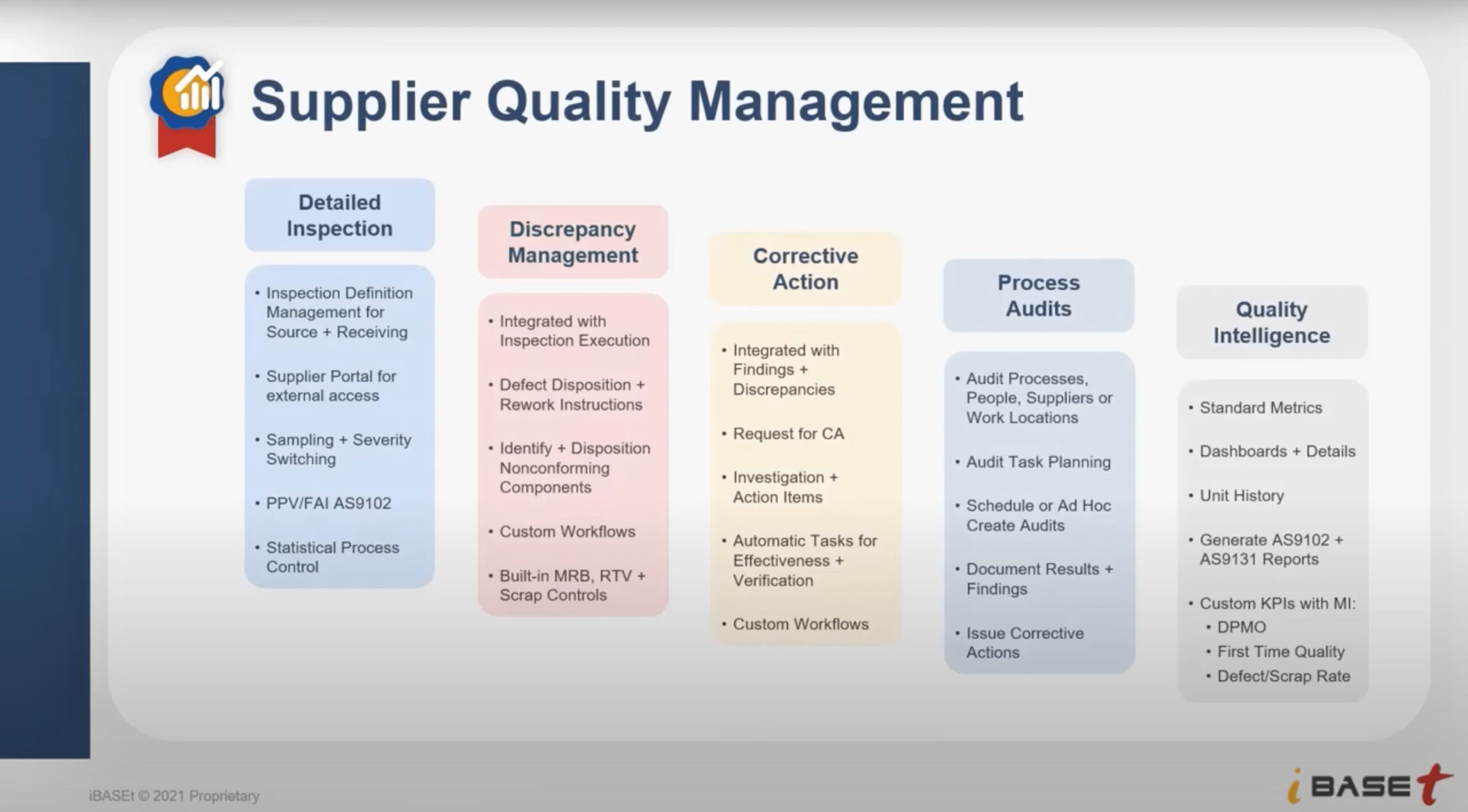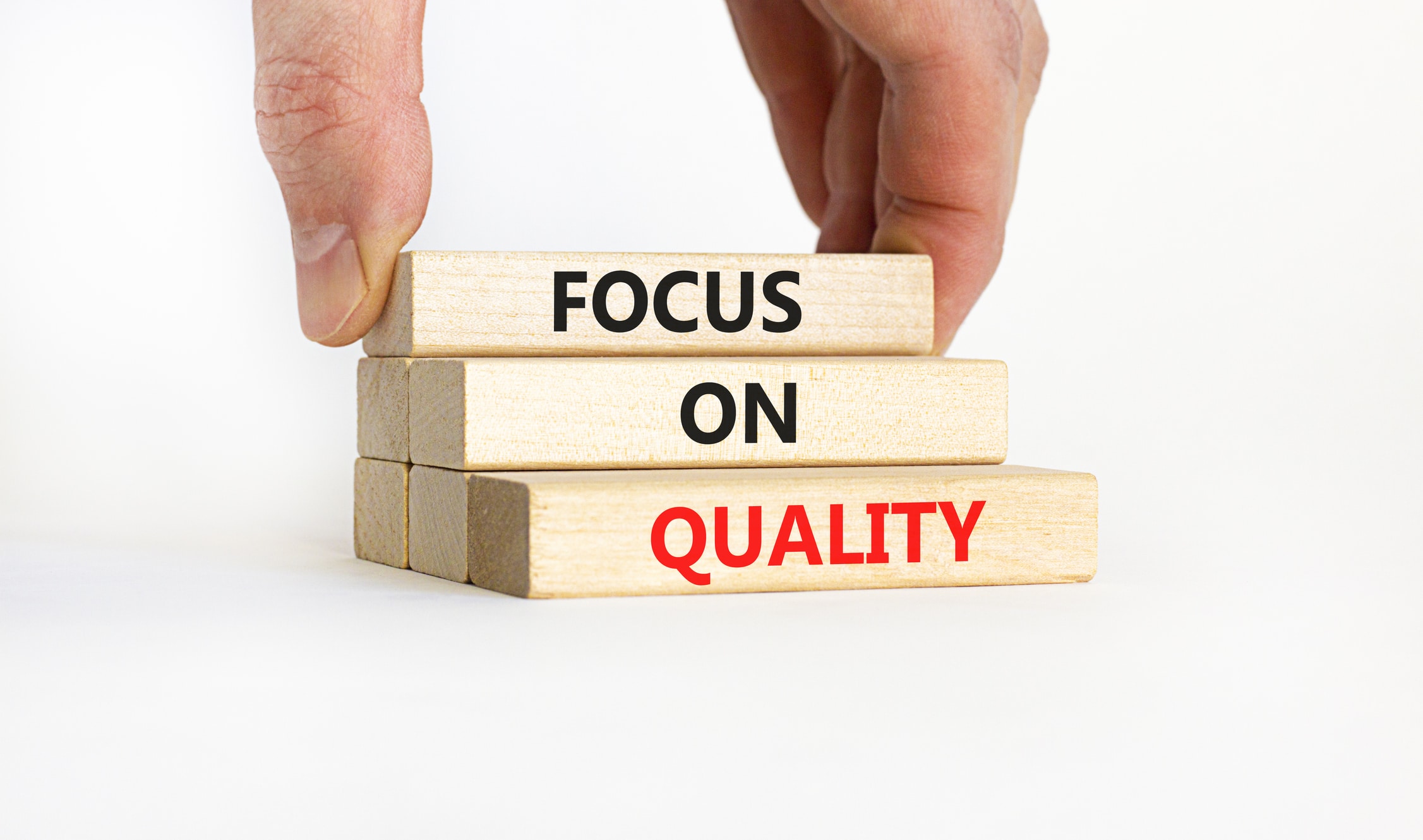Supply chains for complex manufacturers are extensive and difficult to manage. To optimize performance, manufacturers must carefully track how each supplier is contributing to their enterprise. Are suppliers causing problems or enabling success? Solumina Supplier Quality Management software can determine the answer by monitoring and responding to changes in supplier performance on an enterprise scale.

- Improved communication with suppliers
- Continuous improvement in supplier performance
- Ability to measure and compare supplier performance
- Continuous improvement in design and production
- Healthy competition among suppliers through accountability
Solumina SQM by iBase-t
Get visibility and control of supplier products before they reach your shop floor.
For complex discrete manufacturers, suppliers are so involved in production that they are essentially part of the manufacturing enterprise. SQM software provides the level of visibility and communication needed for suppliers to contribute their specific knowledge in the design process, creating a proactive, collaborative approach to the most consistent delivery of high-quality finished goods.
Supplier management is an ongoing process that requires continuous optimization to maintain top performance. The benefits are fully realized once companies have built a relationship of shared expertise and resources. Beyond just components, suppliers can also provide specialized design and development services.


Solumina SQM Brochure
Solumina Supplier Quality Management (SQM) by iBase-t is an integrated, dynamic system that helps you efficiently define, communicate, manage, and verify product requirements with your suppliers.
- Reduced manual management tasks
- Improved component parts quality
- Minimized inventory in receiving inspection
- Lower sourcing and warranty administrative costs
- Supplier ownership of process strengths and weaknesses
- Minimized need for third-party contract inspection
- Reduced inspection and audit oversight cost
- Quicker issue disposition and corrective action

The more agile and flexible the supply chain, the greater the resilience and strength of the manufacturer. Solumina SQM offers a competitive advantage for manufacturers tasked with producing highly engineered products where they must assure the quality of their entire supply chain.
The quality standards in today’s increasingly networked and global marketplace demand strict compliance and lowered costs. Manufacturers must have complete faith in their suppliers. No two suppliers are the same, and every manufacturer has unique needs for their product and circumstances. The following are some general steps to a successful supplier relationship:
Most manufacturers use their own unique KPIs, but there are some overarching aspects of supplier quality that are always important to measure. The traditional approach to supplier quality is to inspect incoming items to ensure they meet purchase specifications. The traditional approach to supplier quality is to inspect incoming items to ensure they meet purchase specifications.
Solumina SQM takes a proactive role in ensuring that supplier materials and services meet the manufacturer’s quality expectations. It incorporates all the processes associated with supplier delivery, including manufacturing processes, on-time delivery, and proper packaging.
Here are some of the ways Solumina SQM measures quality in complex discrete manufacturing:





